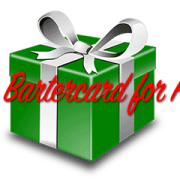Are You Claiming All The Tax Deductions You Are Entitled To?
Apart from a few exceptions any costs you incur to run the business will be tax deductible. For example if you decide a BMW is the type of car you need to run your business, the IR (Inland Revenue) cannot insist you buy a 2nd hand ute. Some costs like insurance can be a little tricky because depending on when you pay them, the cover may extend into the next year, so in that case part of the cost will have to be spread. A tip is to get your policies in line with your financial year. However, if the cost is of a personal nature or getting a business going this is where you could come unstuck. Here are some examples:
Personal Expenses
- Travel from to work from home and back
- Normal dress wear is not deductible unless it is for protective purposes, like safety boots or overalls.
- Going out to the pub with your mates after work
- Optician glasses, unless they are for protection purposes
- The cost of taking your partner on an overseas business trip unless they are actively involved in the business.
- These types of expenses should be charged to ‘Drawings’.
Capital Payments
- The cost related to setting up a business including forming a company, these are all classified as formation costs.
- Money you pay to repay a hire purchase, finance lease or other loans should be charged to the liability accounts.
- The costs relating to buying new equipment or machines including the travel to inspect and install it. These should go to fixed asset codes
There is a slight twist with the last one above because you can claim that cost as an expense, but it happens on the drip feed and that drip feed process is called in accounting terms “Depreciation”. In other words it is simply spreading the cost over a number of years. Realise this is not for your benefit, it’s just the way you have to play the game.
When Using Your Home for Business
If you run your business from home the tax law allows you to claim a certain percentage of your home expenses as a business expense. These will include:
- Rates (Rent if you don’t own)
- Electricity
- Insurance
- Interest on Mortgage
- Repairs and Maintenance
- Depreciation on carpets, furnishings in the rooms used for business
- Business uses the garage can also be included as part of the area used for business.
It is a good idea to keep a permanent record of the calculation you perform to work out the use you are making of your own home. Do this by measuring the total house and then measure the area occupied and used regularly by the business. This might include hallways, toilet, meeting areas and part of the kitchen.
Telephone
Unless you keep records to show the contrary, IRD allows you to claim 50% of the phone rental for business if used part for private and business, so long as the business element is reasonably significant.
Farmers who live and work on the farm can claim 100% of telephone as business.
Entertainment
This is quite a difficult one and you might want to go to the IR web site and download the IR268 guide. https://www.ird.govt.nz/forms-guides/number/forms-200-299/ir268-guide-entertainment-expenses.html As a simple rule of thumb if you provide food and drink in the town where you live then only 50% of the cost is deductible. Which simply means your share is considered a personal expense.
Interest
Interest paid in running a business is generally tax deductible. However, be careful. However, if it relates to money borrowed for real estate transactions get expert tax advice.
Business Expenses
Don’t try paying yourself an expense allowance to cover incidental business expenses. That sort of expense does not wash well with the IR, they much prefer actual expenses. And because we live in a self-assessed tax environment at the end of the day you are personally liable for your deductions, not your accountant. So it is prudent to err on the side of conservatism.
If you need cash for parking meters, try and keep some change in your car or use your credit card or telephone.
As must as possible pay your expenses out of the business bank account, not from personal savings as that will only create extra work.



Leave a Reply
Want to join the discussion?Feel free to contribute!